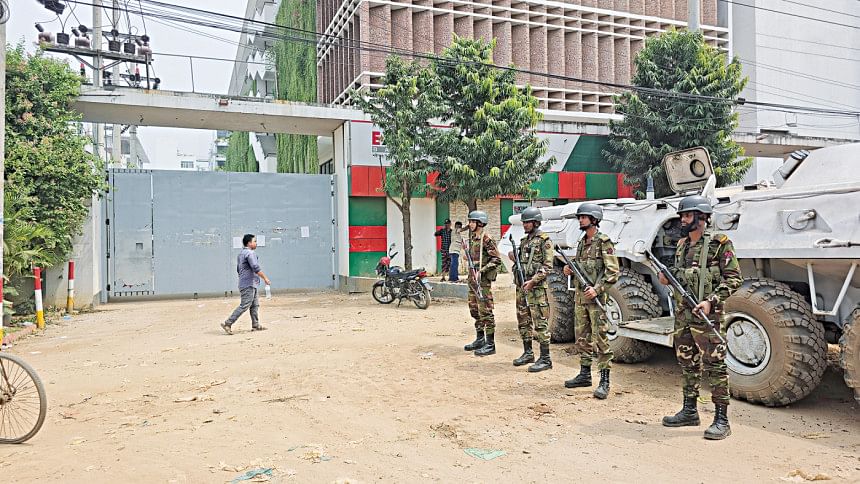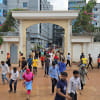Factory owners accept all 18 demands of RMG workers

Garment factory owners in Bangladesh have accepted all 18 of the demands of the workers, such as ensuring provisions for tiffin and night allowances, to tame ongoing unrest in the sector.
Labour and Employment Secretary AHM Shafiquzzaman announced the decision at a press briefing at the labour ministry in Dhaka yesterday. He was joined by four advisers to the interim government, union leaders and leaders of the Bangladesh Garment Manufacturers and Exporters Association (BGMEA).
According to our Savar correspondent, around 55 garment factories in the Ashulia area remained closed yesterday.
Normal operations in the industrial zones are expected to resume on Wednesday as demands have been addressed, Labour and Employment Adviser Asif Mahmud Sajib Bhuiyan said at the briefing.
The arrears in salary will also be cleared, he said, adding that normalcy would be restored to the sector from today.
Home Affairs Adviser Jahangir Alam Chowdhury echoed Bhuiyan's sentiments, urging workers to return to their workplaces.
"I want to see all industrial units operating from tomorrow [Wednesday]. Please do not take the law into your own hands," Chowdhury said at the meeting.
Speaking on behalf of union leaders, Kutub Uddin Ahmed, former secretary general of IndustriALL Bangladesh Council, also urged workers to return to work.
He added that different quarters outside the garment sector had been instigating the unrest.
The workers' key demands included implementing the existing minimum wage in all factories and settling all outstanding payments. Additionally, workers sought to raise attendance bonuses by Tk 225, night shift bonuses by Tk 10 and tiffin allowance by Tk 10.
Shafiquzzaman said around 1 to 2 percent of garment factories did not implement the latest wage structure that came into effect in December last year.
He added that the government would also provide support in dense industrial areas under the Trading Corporation of Bangladesh's open market sales programme, allowing workers to buy essentials at cheap rates.
The government will frame a policy to centrally control the jhut (waste fabric) business as control for the trade of scrapped clothes emerged as one of the main reasons for the unrest.
A separate review committee will submit a report on the industry's capacity to review the wage structure, the labour secretary said, adding that the government will also review police cases against workers to ensure they are not harassed.
Md Sarwar Alam, superintendent of Ashulia Industrial Police-1, said yesterday: "Of the closed factories, 46 were shut today due to workers' protests over demands for salary increases, increments and other benefits while nine had declared a general holiday."
Labour leaders reported that workers of several factories gathered in front of the premises in the morning but left when they were found to be closed.
According to the Industrial Police, the closed factories are primarily located along the Bypail-Abdullahpur road in the Jamgora, Narasinghpur, and Zirabo areas of Ashulia.

 For all latest news, follow The Daily Star's Google News channel.
For all latest news, follow The Daily Star's Google News channel. 








Comments